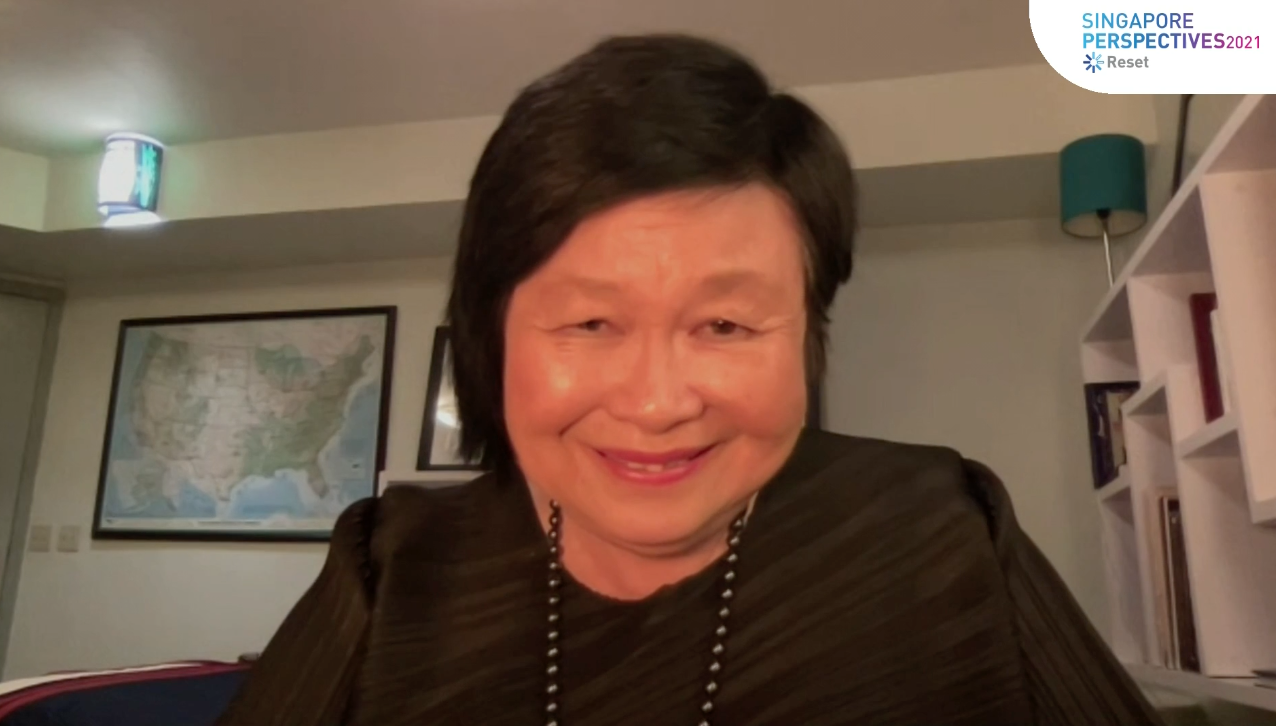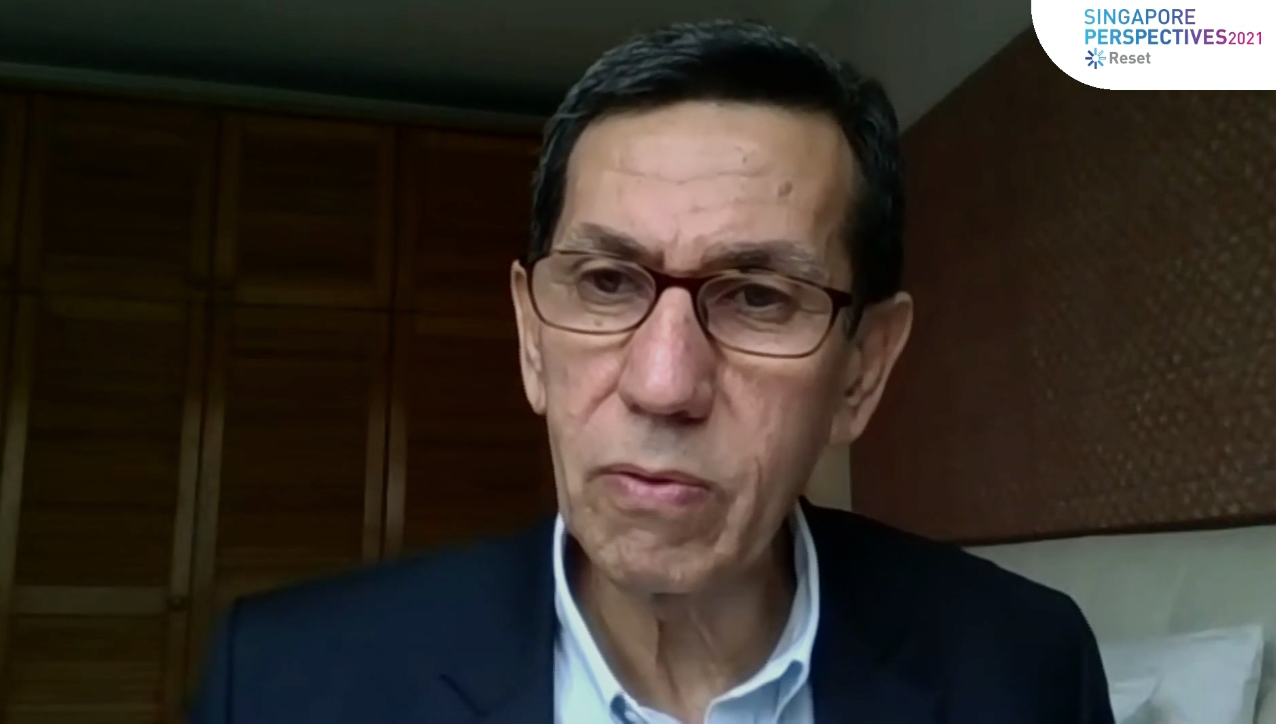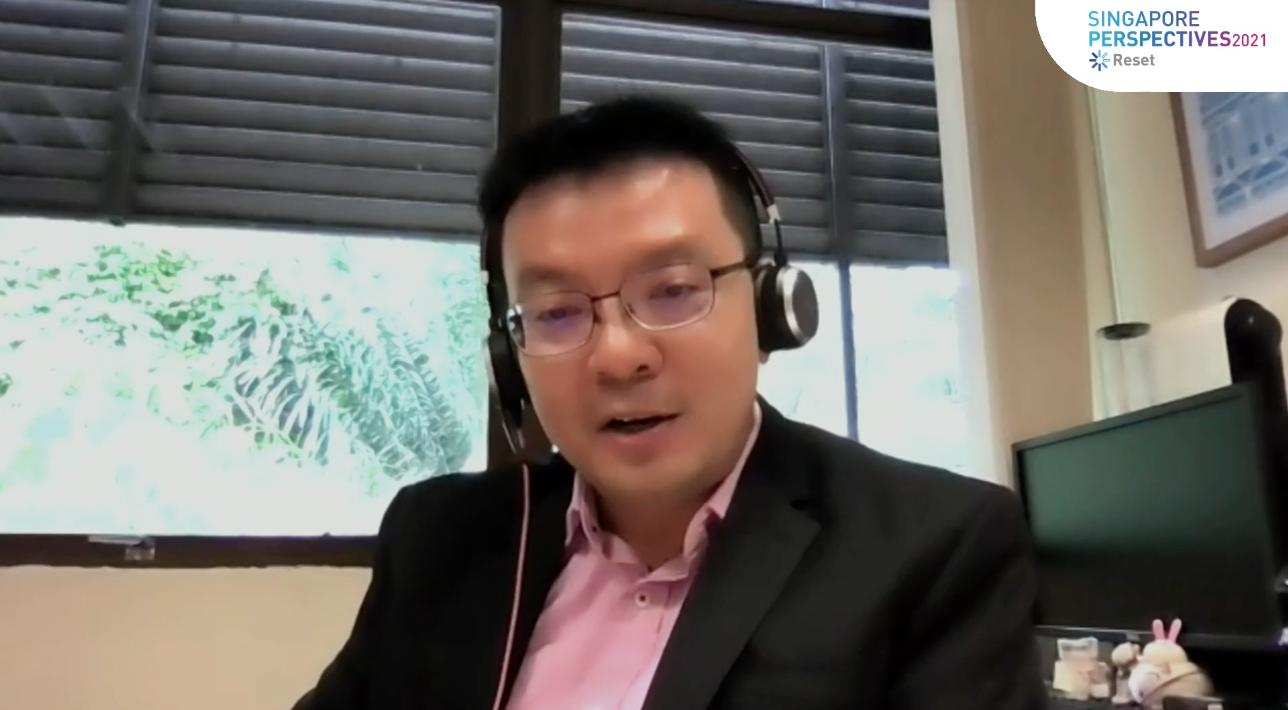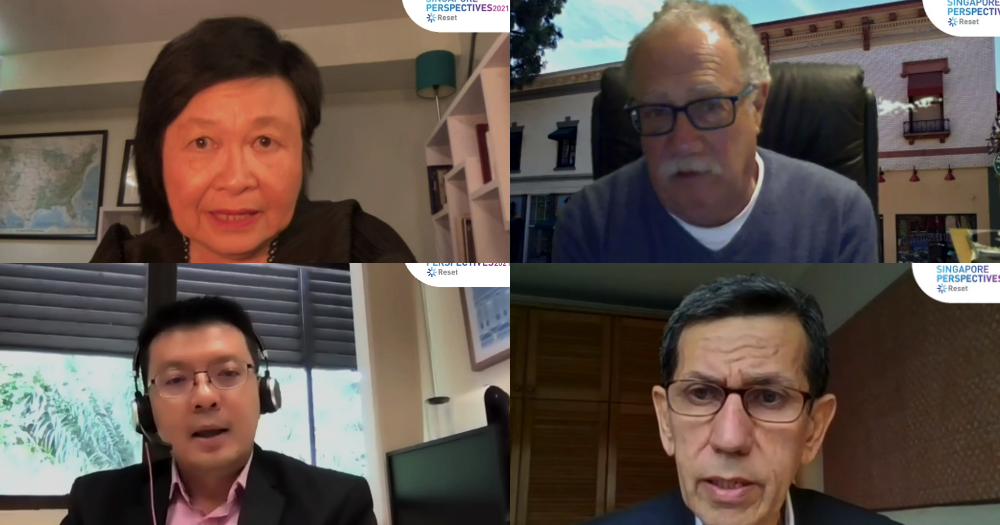Cancel culture, intersectionality, and Chinese privilege -- these were some of the buzzwords that came up during a discussion by a group of speakers and panellists on the topic of "Identities and Cohesion", as part of the Institute of Policy Studies' (IPS) annual forum, Singapore Perspectives, on Jan. 14, 2021.
Moderator Mathew Mathews, a Principal Research Fellow and Head of Social Lab at IPS, brought up the topic of Chinese privilege within Singapore, and how the concept is an importation of ideas from the United States.
Lee Kuan Yew would stomp on it: IPS panelist
On this topic, Mei Lin Fung, the co-founder of People-Centered Internet, opened her response with the statement that she was "agitated" by the idea of Chinese privilege.
 Image via IPS Forum 2021
Image via IPS Forum 2021
Fung is a Singaporean who has been living in the U.S. for several decades.
"And I really think if Lee Kuan Yew was here, he would really stomp on it, and I think it's legitimate to do that," she said.
She added:
"I happen to have actually been looking at the comparison of the Singapore health system and the American health system. Singapore spends 25 per cent less than the American system, and people are bringing ideas from the American health system into Singapore when Singapore is so much better. People in the U.S. would just be in heaven to have Singapore's system of health."
To continue, Fung thinks that the idea of white privilege in the U.S. translating to Chinese privilege in Singapore is not just a shortcut, but also a "lack of thinking."
She also believes that the answer should instead be to have a dialogical society, a concept that was earlier mentioned by Mohammad Alami Musa, the Head of Studies in Inter-Religious Relations in Plural Societies (SRP) Programme at S. Rajaratnam School of International Studies.
 Image via IPS Forum 2021
Image via IPS Forum 2021
In the earlier part of the forum, Alami shared that as a firm believer of dialogue, he hopes for Singapore to grow towards being a dialogical society as an antidote towards social polarisation.
On the topic of Chinese privilege, Fung added:
"That these things should be argued out in the intellectual scarcity of an idea like Chinese privilege, just using that as an argumentation idea that you brought from another country that doesn't apply, is ridiculous."
Joel Kotkin, a Presidential Fellow in Urban Futures at Chapman University in the U.S., expressed similar sentiments as Fung.
 Image via IPS Forum 2021
Image via IPS Forum 2021
"I think the idea of white privilege is, absurd, you know, if you spend time in this country, you'll see lots of poor white people," Kotkin said.
He also concurred on the importance of dialogue.
"People are much less concerned about people's privilege if they are moving upwards. But if you're not going upwards and then you can blame somebody else then I think it's a real problem.
[...]
I know even in Singapore, there are poor Chinese, there are Chinese who are struggling, particularly immigrants."
Chinese privilege needs to be situated within Singapore's context
The academics were articulating their views on what Associate Professor Daniel Goh had earlier expounded on.
 Image via IPS Forum 2021
Image via IPS Forum 2021
Goh, who is the deputy head of sociology in the National University of Singapore (NUS), said that the concept of Chinese privilege has been “under-discussed and under-specified” within the context of Singapore’s culture and history.
“It cannot be something that is just simply equivalent to white privilege, because America had a very different history when it comes to racial relations, as compared to Singapore,” the associate professor said, with the response framed within a previous discussion on ethnic discrimination in the U.S.
Goh then brought up instances where people discussed Chinese privilege by citing structural and institutional racism, as well as racial prejudice stereotyping, and discrimination.
On this, he argued that Chinese privilege is not “useful” as a concept.
Goh explained: "When we bring in something like ‘Chinese privilege’ we’re bringing in the history of another society without being critical."
"With regard to the term ‘Chinese privilege’, the realities of racism and prejudice in Singapore are not simply equivalent to white privilege in America," Goh said.
"Singapore is a post-colonial country with racial categories and structures that came from the British."
The direct importation of ideas brings with it its own set of problems.
Goh added: "I worry that with the importation of ideas, we do not focus enough on our own previous thinkers and indigenous intellectual traditions."
The nuanced argument was supported by Alami Musa, who added that such a concept should not be generalised.
Top image via IPS Forum 2021
If you like what you read, follow us on Facebook, Instagram, Twitter and Telegram to get the latest updates.
